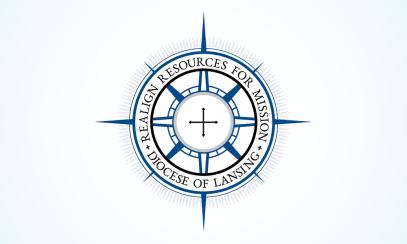War in Syria
On March 15, 2011, the so-called Arab Spring arrived in the Middle Eastern nation of Syria taking the form of demonstrations calling for the resignation of President Bashar al-Assad. The growth of the demonstrations soon provoked Assad, whose family has been in power since 1971, into deploying the army against the uprising. The resulting civil war soon grew to its current state which finds approximately nine separate factions all pitted against the government. The war continues to rage and reports of the regime’s use of chemical weapons against its citizens now has the United States moving ever closer to yet another military intervention in the troubled Middle East.
The Proposed Intervention
The Obama Administration is seeking to use military force in response to the Assad regime’s use of chemical weapons against the Syrian people in violation of international law. The President has argued that he wants to take action in order to degrade the capacity of the Assad regime to use chemical weapons on the Syrian people. The call for action is in response to Assad’s apparent firing of chemical weapons into a suburb of the capital city of Damascus, killing more than 1,400 people, including more than 400 children.
According to an NBC news report by Erin McClam on September 3, 2013, the Senate Foreign Relations Committee leadership, in response to a direct request from President Obama, agreed on a draft resolution reportedly authorizing the use of military force in Syria. The resolution does set a 60-day deadline (with one 30-day extension possible)and bars the involvement of ground forces in the conflict. If the resolution is approved by the full panel, it will be sent to the Senate for a vote once members return from recess on September 9, 2013.
Meanwhile, U.N. Secretary-General Ban Ki-moon has stated that the use of force is only legal when a country is acting in self-defense or with the approval of the U.N. Security Council. With Russia and China both having veto power in the Council, U.N. support for a strike on Syria is unlikely. However, President Obama has indicated he is comfortable going forward without the Security Council.
The Just War Question
Understanding the Catholic response to the proposed use of military force in Syria by the United States requires consideration of whether such a strike is just. The Catechism of the Catholic Church enumerates strict conditions for the legitimate use of military force:
- the damage inflicted by the aggressor on the nation or community of nations must be lasting, grave, and certain;
- all other means of putting an end to it must have been shown to be impractical or ineffective;
- there must be serious prospects of success; and
- the use of arms must not produce evils and disorders graver than the evil to be eliminated.
Maryann Cusimano Love, Institute for Policy Research Fellow at the Catholic University of America, argues that the Syrians clearly have the right to defend themselves against the military attacks of the Assad regime. However, the question as to whether external actors such as the U.S. have a just cause to militarily intervene to protect Syrians from their own brutal government is far more complicated.
For example, the Catechism states that the evaluation of these conditions as “justifying war” belongs to those who have the responsibility for the common good (2309). In other words, only a right, public authority can enter into war, guided by the right intention of protecting peace and the common good. But, Love asks, who has the rightful authority to assert just war theory in the protection of civilians in humanitarian interventions? Many say only a right, public, international body such as the United Nations would qualify rather than a single state alone.
The U.S. Bishops’
Many local bishops have called for dialogue rather than military action in Syria. One such example is Bishop Richard Pates of Des Moines, Iowa. On August 29, 2013, he wrote to Secretary of State John Kerry in his capacity as chair of the U.S. Catholic Bishops’ Committee on International Justice and Peace.
While Bishop Pates decried the use of chemical weapons as atrocious, he stated that the “longstanding position of our Conference of Bishops is that the Syrian people urgently need a political solution that ends the fighting and creates a future for all Syrians, one that respects human rights and religious freedom.” He also urged the United States to “work with other governments to obtain a ceasefire, initiate serious negotiations, provide impartial and neutral humanitarian assistance, and encourage building an inclusive society in Syria that protects the rights of all its citizens, including Christians and other minorities.”
Additionally, Catholic Relief Services (CRS), the international humanitarian arm of the United States Conference of Catholic Bishops, has already programmed $26 million for the Syrian refugee crisis. The funds will provide trauma counseling, shelter, food, water, medical equipment and services, and help with education.
Most Rev. Earl Boyea, Bishop of Lansing
As the media have widely reported, Pope Francis has asked that Saturday, September 7, be observed as a day of fast and prayer for peace in the mideast, particularly in Syria. The pope's message is addressed to all Catholics, as well as to persons of good will from other faith traditions throughout the world. Saturday is, as the pope observed in his Angelus message this past Sunday, the vigil of the birth of Mary, Queen of Peace.
Pope Francis condemned both the use of chemical weapons in Syria and the current proposal to respond with military force. “How much suffering, how much devastation, how much pain has the use of arms carried in its wake in that martyred country, especially among civilians and the unarmed!” Saying that “War begets war, violence begets violence,” he is asking instead that prayers and fasting be the response of Christians and others who seek peace.
In Rome, the day of prayer will conclude with a vigil in Saint Peter’s Square, beginning at 7:00 p.m. and lasting until midnight (local time). Pope Francis has asked local dioceses to arrange similar gatherings.
My request is that parishes throughout the Diocese of Lansing join with the Holy Father and the universal Church is this plea for divine assistance. Perhaps from 7:00 to 8:00 p.m., our parishes could provide for Adoration of the Blessed Sacrament, accompanied by a rosary or other prayers for peace chosen by the pastor. Whether or not they are able to participate in such a parish event, I ask the faithful of this diocese to pray throughout the day for peace. Additionally, I ask that they prayerfully consider a fast from a portion of their usual food or some other voluntary act of personal sacrifice.
Mary, Queen of Peace, pray for us.
The Pope
Pope Francis has likewise asserted that dialogue and negotiations are “the only option for putting an end to the conflict and violence that each day cause the loss of many human lives, especially among the unarmed population” in Syria. This sentiment was reiterated during an August 25, 2013 Vatican Radio address:
“With great suffering and concern I continue to follow the situation in Syria. The increase in violence in a war between brothers, with the proliferation of massacres and atrocities…leads me once again raise my voice that the clatter of arms may cease. It is not confrontation that offers hope to resolve problems, but rather the ability to meet and dialogue.”
The Seeds of War
Injustice, excessive economic or social inequality, envy, distrust, and pride raging among [people] and nations constantly threaten peace and cause wars. Everything done to overcome these disorders contributes to building up peace and avoiding war…
Catechism of the Catholic Church (2317)
Pre-protest Syria was characterized by the following: high poverty rates, increased socioeconomic inequality due to policies benefiting mostly a government connected minority, a declining standard of living, dramatically rising commodity prices, high youth unemployment, strictly limited rights of free expression, association and assembly, imprisonment and torture of human rights activists, and discrimination against women and ethnic minorities in the public sector.
The Fruits of War
Because of the evils and injustices that all war brings with it, we must do everything reasonably possible to avoid it.
Catechism of the Catholic Church (2327)
Estimated Deaths 83,260 to 110,370*
Refugees 2,000,000**
Displaced inside Syria 4,250,000**
Schools damaged/destroyed 3,000**
Economy shrinkage 35%*
Massacres, torture, food deprivation as a weapon of war, rape as a weapon of war, kidnapping, and use of children in combat have also reportedly characterized the conflict.
*Primary source: “Syria Civil War” on Wikipedia
**Reuters (9/3/2013) (Reporting by Tom Miles; Addl reporting by Stephanie Nebehay and Anna Ringstrom)
Worldwide Day of Fasting and Prayer
On Sunday, September 1, 2013, Pope Francis announced from St. Peter’s Square he would lead a worldwide day of fasting and prayer for peace on September 7. The prayer vigil in the square will run from 7 p.m. to midnight.
In his remarks, the pope acknowledged, “My heart is deeply wounded by what is happening in Syria and anguished by the dramatic developments” on the horizon. However, after condemning the use of chemical weapons, he again appealed for all sides to lay down their arms and raised his voice declaring, “War brings on war! Violence brings on violence.”



